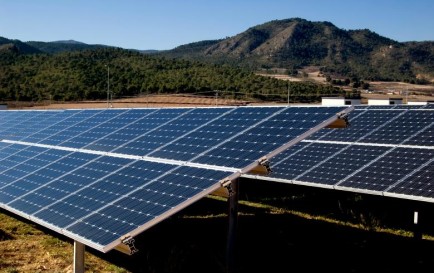
By ratifying the Paris Agreement, Spain must now take measures to lower its carbon footprint significantly.
Spain has joined China, the USA, India, Australia and a handful of large EU nations in ratifying the Paris Agreement on climate change that was drawn up at the COP21 conference last December…
By agreeing to the terms laid out in Paris, Spain will seek to implement measures designed at limiting global warming to below 2 degrees Celsius between now and the end of the century.
Scientists are in agreement that if carbon emissions are not cut by around 35-50% in most nations, then the world’s average global temperature will rise by more than 2 degrees Celsius – at which point the devastating effects of global warming will be irreversible.
The Spanish Environment Minister Isabel García Tejerina revealed last week that the new government will ratify the details as soon as possible. The minister’s words were particularly welcomed at a time of great uncertainty for the Agreement following the election of US President Donald Trump.
Although Barack Obama pushed through America’s ratification of the Agreement earlier this year, Trump has already threatened to “rip up the agreement” due to his severe anti-climate-change stance.
For now, though, the US are in, as are China, the UK, Germany and India – some of the world’s largest emitters of carbon emissions. Spain has now joined that select group.
“Ratification will allow us to participate fully in all the decisions that will start to be adopted,” said Tejerina at the COP22 gathering in Morocco. “It is a change in the global economy that already is unstoppable, not only by governments but also by companies. We have to wait and see how the new American administration responds.”
Spain was, at one point, a global leader in the adoption of renewable energy. Wind and solar power output in the country accounts for more than 15% of power generation, but since 2011 the generous subsidies that made it profitable to install solar panels on one’s rooftop have been removed, and there is now even a controversial “Sun tax” in place, which actively charges those who feed their solar power into the grid.
However, this ruling is widely expected to be rescinded in the new government as solar power becomes cheaper to install and, thus, no longer requires any government support.
 en
en



 Vlaams-Nederlands
Vlaams-Nederlands
3 Comments
Leave a Comment
DISCLAIMER
The opinions and comments expressed by contributors to this Blog are theirs alone and do not necessarily reflect the views of VIVA Homes Under the Sun Ltd, any of its associated companies, or employees; nor is VIVA to be held responsible or accountable for the accuracy of any of the information supplied.
DaveNovember 15, 2016 at 4:26 pm
Does this mean the comments I’d received from contacts in Valencia concerning the installation of solar equipment being illegal are wrong?
Does seem odd that some provinces are promoting it and others appear to be holding it up?
Ian CloverNovember 16, 2016 at 4:36 pm
Have you got something to say?